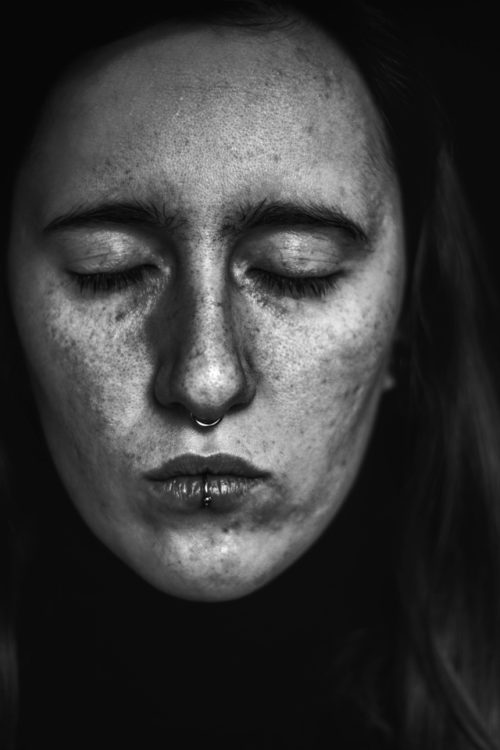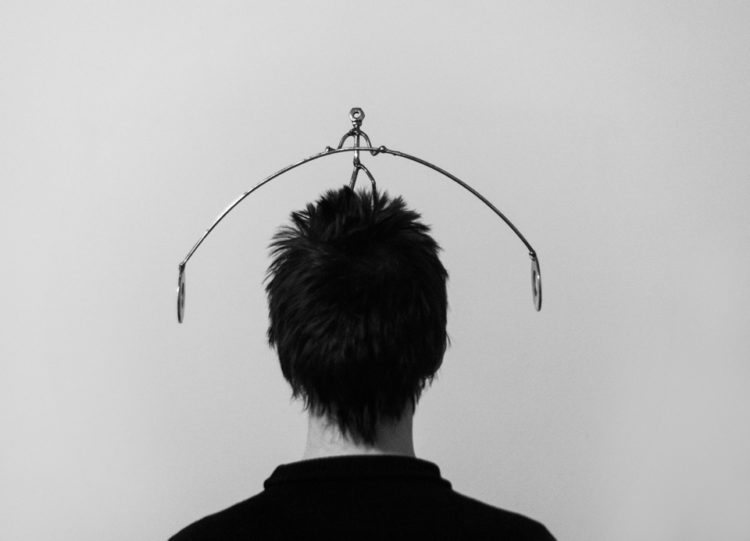Showing the Different Faces of Bipolar Disorder Through Photos
Almost four years ago, I was diagnosed with bipolar disorder. Finding this diagnosis for me was a huge change (a positive one), and that led me to start a journey that continues to this day, where the mental stability I have is maintained. I lived through many things and something curious is how the disorder began to show before I gave it a name, through my photos.
• What is Bipolar disorder?
The images I am going to start uploading are a selection of photos from different projects, which I feel — interpreting them now — showed the symptoms of what we call bipolar disorder long before I could name them. They are in a non-chronological order, sometimes accompanied by different things I wrote over the years — telling the story, explaining how I experienced the manifestation of these symptoms and other thoughts.
To start, here is an excerpt from “Le Pus de la Plaie” by Raymond Guérin:
“It is ‘on the spur of the moment’ that one should speak of psychological suffering … It is about one’s own field of action, at its very moment, that it should be grasped. After it has calmed down, dissipated, the spirit is too inclined to forget, or at least to minimize what he has been […] If one waits for the cure, the impressions that will remain will be vague, imprecise, without vigor and without color.”
Here are some of the photos accompanied by my writings:

There are times when I like to compare depression to a foggy lens, but it could also be seen as a lens that lets you see yourself at such a level of detail it’s almost impossible to escape without noticing all your “blemishes.” I put it in quotation marks on purpose, because the defects are something very relative and very personal. We all have defects, even if we don’t want to, and as our life passes we perceive them more or less. Some people see defects in the physical, others in their behaviors or ways of being, others in absolutely everything. I would say it is human to see defects at some point. But just as we see defects, it is logical we also perceive our virtues, to a greater or lesser extent, throughout our lives.
But what happens then during a depression?
At that time, I feel it is literally impossible to perceive even the slightest virtue. You analyze yourself at an incredible level of detail, marking every ugly thing you find no matter how small it is and — right here is the big problem — enlarging it in your head to an exuberant level that completely escapes reality. And the worst thing is not being able to control it (because we agree if it could only be controlled, we would not be talking about a mental health problem).
Depression is not just sadness. It is not something that’s “going to go away if you think positive.” Depression is something I’ve found dynamites you, boycotts you, keeps you from seeing whatever little good you have. Depression marks each of your pores, each stain on your being and invades you, consumes you, makes you agonize even though no one from outside can see it.

So far I have mainly related about one of the poles of bipolar disorder: depression. But today I wanted to bring the other side: mania.
It is no coincidence bipolar disorder is difficult to identify or it is frequently confused with unipolar depression, because socially, it is well-seen (and even expected) to have overflowing energy, productivity and creativity. The point is mania is not just what sounds “good.” From my experience, mania is spending days without sleep. It’s skipping meals because of how busy you are and not even realizing it. It’s doing so many things at once, you can’t finish a single one. It is having delusions of grandeur, feeling you are going to change the world or you are going to achieve your goals with great ease. It is becoming irritable with anything that works against you. It is being frantic, constantly moving because the energy exceeds your body’s ability to distribute it. It is having thoughts at a thousand miles an hour, and having blackouts. It is seeing what is really bad as not so bad, and what is good as exaggeratedly good. It is spending money that you do not have or do not owe on unnecessary things. It is going off to do activities without any type of parachute. It’s being extremely sociable, in a way you wouldn’t typically be.
Mania is not funny, mania is not healthy, nor is it being “a quirky person.” Mania, with all it entails, is a serious health problem that, in bipolar disorder, is accompanied by falling into a well, deeper and deeper if no net is laid.

Euthymia refers to the normal and calm state of mind. Balanced. The period in which there are no episodes of mania/hypomania or depression.
I have been in this state for several months, and I cannot explain how happy I am about it. There are people with bipolar disorder who sometimes prefer mania because it can feel good, but personally, I would not replace stability with anything. In general, you are not always aware you are stable, but every once in a while, I realize it and really enjoy it.
How does it feel?
I remember the first time I felt it after years. I was in the library. That morning I had taken my medicine in the morning shortly after the diagnosis because I forgot to take it at night as directed. I was going to read something, knowing I was not going to be able to concentrate, as always. But that time, it didn’t happen. I was able to read and understand what I was reading without having to review it more than three times, and when I realized it, three hours had already passed in which my head had not gone elsewhere.
Other times I realized this were in college classes. In an instant, I remember I was was giving all my attention to the class without my head leaving. Or on the bus, when I noticed I was really present at that moment listening to music.
Stability for me means feeling calm, being able to focus when necessary, being able to analyze the things that happen to me from a realistic perspective with its bad and good things. Being able to be productive and balanced, idle. Basically, my head doesn’t go 200 miles and hour with unrealistic positive or depressing thoughts.
And if I am honest with you, I am scared. I am afraid someday this stability will disappear. I appreciate it too much. And relapses are part of bipolar disorder. But what makes that fear not so strong is after four years and a lot of work, I feel like I have more ways to face an episode and be victorious. I hope when the moment comes, I’ll be ready.
A version of this article was originally published on Notas de noches de insomnia.
Lead photo and all featured photos are original photography by author

